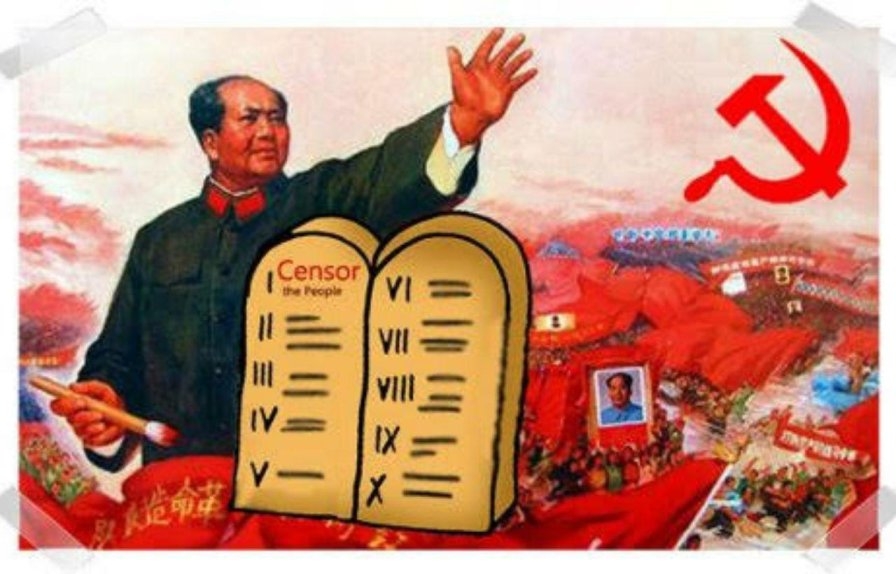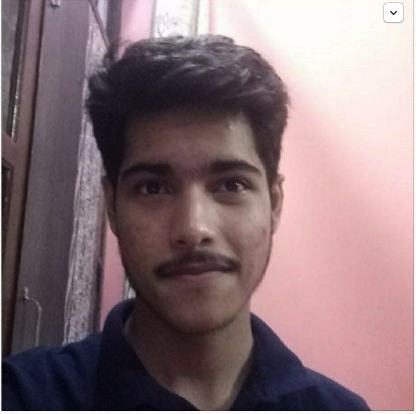Mao’s China- a safe haven for tyranny
Therefore it was natural for the US to support the nationalist Chiang Kai-shek government over the Communists led by Mao during the civil war. After the end of World War II, the U.S. continued their military assistance to the KMT government forces against the People’s Liberation Army (PLA) led by Mao Zedong during the civil war.

Mao Zedong, more commonly known as Chairman Mao, was the founding father of the People’s Republic of China, which he ruled as the Chairman of the Chinese Communist Party (CCP) from 1949 until his death in 1976.
A son to prosperous peasants from Hunan, Mao adopted Marxist-Leninist ideology during his time in the Peking University. He became a founder member of the Chinese Communist Party in 1921 and rose through the party ranks, leading the Autumn Harvest Uprising in 1927.
He also founded the Chinese Worker’s and Peasant’s Red Army, a predecessor to People’s Liberation Army (PLA), during the Chinese civil war Kuomintang (KMT) and the CCP.
The First Taste of Power
The start of the Cold War meant that the United States of America resisted any communist regime seen close to the Soviet Union.
Therefore it was natural for the US to support the nationalist Chiang Kai-shek government over the Communists led by Mao during the civil war. After the end of World War II, the U.S. continued their military assistance to the KMT government forces against the People’s Liberation Army (PLA) led by Mao Zedong during the civil war.
Likewise, the Soviet Union gave quasi-covert support to Mao by their occupation of north east China, which allowed the PLA to move in en masse and take large supplies of arms left by the Japanese Army after their siege of Mainland China.
In 1948, under direct orders from Mao, the People's Liberation Army starved out the Kuomintang forces occupying the city of Changchun in the north-east of China. At least 160,000 civilians are believed to have perished during the siege, which lasted from June until October.
PLA lieutenant colonel Zhang Zhenglu, documented the siege in his book White Snow, Red Blood, and compared it to atomic attack on Hiroshima: "The casualties were about the same. Hiroshima took nine seconds; Changchun took five months."
By January 1949, KMT forces suffered great losses in decisive battles against the PLA. In the early morning of December 1949, PLA completed the siege of last KMT controlled cities of Chongqing and Chengdu and Chiang Kai-shek was forced to flee from the mainland to Taiwan.
On 1st November 1949, Mao declared the foundation of the People’s Republic of China, a single party controlled state. The country was to be administered by the Chairman of the CCP with the politburo of the party serving as the law making infrastructure of the country.
Freedom Suspended Sine Die
Chairman Mao solidified his control over the through campaigns against landlords, suppression of “counter revolutionaries”, "Three-anti and Five-anti campaigns" and through a psychological victory in the Korean War, which altogether resulted in the deaths of several-million Chinese.
Mao believed in turning China into a socialist country on the lines of Joseph Stalin’s USSR. Some memoirs of the socialist leader suggest that he believed in enforcing his ideals on common people, even though they had to be forced.
One of the first such steps undertaken by Chairman Mao was the Chinese Land Reform Movement.
The campaign involved mass murder of landlords by tenants and land redistribution to the peasantry. The estimated amount of casualties of the movement ranges from hundreds of thousands to millions.
In terms of the communist party's evaluation, former Chinese Premier Zhou Enlai estimated 830,000 had been killed and Mao Zedong estimated as many as 2 to 3 million were killed.
Those who were killed were targeted on the basis of their social class rather than on the basis of their ethnicity; the neologism "classicide” is used to describe the killings.
Class-motivated mass killings continued almost throughout the 30 years of social and economic transformation in Maoist China, and by the end of reforms, the landlord class had been largely eliminated from Mainland China or had fled to Taiwan.
Shortly after the founding of the PRC in 1949, land reform, according to Mao biographer Philip Short, "lurched violently to the left" with Mao Zedong laying down new guidelines for "not correcting excesses prematurely." Beatings, while not officially promoted by the party, were not prohibited either.
While landlords had no protection, those who were branded "rich peasants" received moderate protections from violence and those on the lower end were fully protected.
In this vein Mao insisted that the people themselves, not the security organs, should become involved in enacting the Land Reform Law and killing the landlords who had oppressed them, which was quite different from the Soviet practice.
Mao thought that peasants who killed landlords would become permanently linked to the revolutionary process in a way that passive spectators could not be.
Estimates for the number of deaths range from a lower range of 200,000 to 800,000, and higher estimates of 2 million to 5 million executions for the years 1949–1953, along with 1.5 million to 6 million sent to “reform” through labor camps, where many perished.
Philip Short noted that such estimates exclude the hundreds of thousands driven to suicide during “struggle sessions” of the three-anti/five-anti campaigns, which also occurred around the same time.
Estimates abroad for the number of dead reach as high as 28 million. In terms of the communist party's evaluation 830,000 had been killed and Mao himself, estimated as many as 2 to 3 million were killed.
Teng Tzu-hui, Vice Chairman of the Central South Military and Administrative Council reported that 15% of China's 50,000,000 landlords and rich peasants had been executed, and 25% had been sent to reform camps.
In the mid-1950s, a second land reform during the Great Leap Forward compelled individual farmers to join collectives, which, in turn, were grouped into People’s communes with centrally controlled property rights and an egalitarian principle of distribution. This policy was generally a failure in terms of production.
Many programs were pursued during this time, including the Hundred Flowers Campaign, in which Mao indicated his supposed willingness to consider different opinions about how China should be governed.
Given the freedom to express themselves, liberal and intellectual Chinese began opposing the Communist Party and questioning its leadership. This was initially tolerated and encouraged.
After a few months, however, Mao's government reversed its policy and persecuted those who had criticised the party, totaling perhaps 500,000, as well as those who were merely alleged to have been critical, in what is called the Anti-Rightist Movement.
Authors such as Jung Chang have alleged that the Hundred Flowers Campaign was merely a ruse to root out "dangerous" thinking.
Li Zhisui, Mao's physician, suggested that Mao had initially seen the policy as a way of weakening opposition to him within the party and that he was surprised by the extent of criticism and the fact that it came to be directed at his own leadership.
It was only then that he used it as a method of identifying and subsequently persecuting those critical of his government. The Hundred Flowers movement led to the condemnation, silencing, and death of many citizens, also linked to Mao's Anti-Rightist Movement, resulting in deaths possibly in the millions.
The Mao Legacy
A controversial figure, Mao is regarded as one of the most important and influential individuals in modern world history. He is also known as a political intellect, theorist, military strategist, poet, and visionary.
During Mao's era, China was involved in the Korean War, the Sino-Soviet split, the Vietnam War, and the rise of Khmer Rouge. Supporters credit him with driving imperialism out of China, modernising the nation and building it into a world power, promoting the status of women, improving education and health care, as well as increasing life expectancy of average Chinese.
Conversely, his regime has been called autocratic and totalitarian, and condemned for bringing about mass repression and destroying religious and cultural artifacts and sites.
It was additionally responsible for vast numbers of deaths with estimates ranging from 40 to 80 million victims through starvation, persecution, prison labor and mass executions.
In mainland China, Mao is still revered by many members and supporters of the Communist Party and respected by a great number of the general population as the "Founding Father of modern China", credited for giving "the Chinese people dignity and self-respect."
Mobo Gao, in his 2008 book The Battle for China's Past: Mao and the Cultural Revolution, credits him for raising the average life expectancy from 35 in 1949 to 63 by 1975, bringing "unity and stability to a country that had been plagued by civil wars and foreign invasions", and laying the foundation for China to "become the equal of the great global powers".
However, Mao also has many Chinese critics. Opposition to him can lead to censorship or professional repercussions in mainland China, and is often done in private settings such as the Internet.
There continue to be disagreements on Mao's legacy. Former Party official Su Shachi has opined that "he was a great historical criminal, but he was also a great force for good."
In a similar vein, journalist Liu Binyan has described Mao as "both monster and a genius." Some historians argue that Mao Zedong was "one of the great tyrants of the twentieth century", and a dictator comparable to Adolf Hitler and Joseph Stalin, with a death toll surpassing both.
In The Black Book of Communism, Jean Louis Margolin writes that "Mao Zedong was so powerful that he was often known as the Red Emperor ... the violence he erected into a whole system far exceeds any national tradition of violence that we might find in China."
Article by

Sanket Koul
The writer is a self described "political enthusiast", he has got an eye for national and international political history. He is currently also working on research regarding the significance of the world order and India's steady rise in it.


